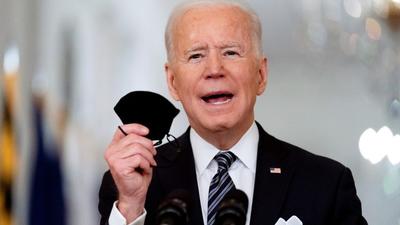
“The emerging data confirms what many of us thought would be the case—that not only do the vaccines stop symptomatic COVID, but they also make it highly unlikely that someone can even be infected at all. I think the preponderance of the evidence supports the fact that vaccinated individuals are not able to spread the virus.“
– Amesh Adalja, MD, is a senior scholar at the Center for Health Security
Think about that quote above. It’s posted on the Johns Hopkins School of Public Health website. Yet extensive limitations or recommended restrictions remain for vaccinated people, from the Center for Disease Control and many state or local health authorities.
Search for an answer and about all you will find are health authorities saying is that vaccinated people still might become infected and thereby put themselves and others at risk. The CDC elaborates a bit, saying they don’t know for how long vaccination immunity lasts or how well vaccines work against new variants of the virus.
Fair enough, except we also know this from the CDC about those “breakthrough cases” – when a vaccinated person gets infected: Out of 84 million fully vaccinated Americans just 6,000 nevertheless later got infected of which 74 died.
That means the chances of getting infected once vaccinated have been about seven one-thousandths of one percent and the chances of dying are one ten-millionth of one percent.
In other word’s the risk is so incomprehensibly small you’d need an electron microscope to see it.
The biggest obstacle now to loosening restrictions, as health authorities see things, is “vaccine hesitancy” — getting the unwilling vaccinated. Yet politicians from President Biden on down go out of their way to wear masks and maintain distancing measures even though they they are vaccinated. Biden delivered his address to a half-empty Congress last night like it was of group of suspected lepers — they were all masked and distanced. That’s senseless given their own claims and data about the vaccine.
It’s as if they are trying to confuse the daylights out of America. It’s no wonder much of the country thinks its leadership has some ulterior motive for prolonging the restrictions. It’s no wonder that a large part of America now so distrusts the medical establishment that they’d prefer to rely on their own immune systems over the vaccine.
Here in Illinois, Gov. JB Pritzker announced this week a $60 million spend to combat vaccine hesitancy by educating the public about it.
It will take more than that unless the supposed experts and politicians get their story and conduct straight. They need to stop treating inconsequential risks as material risks. They must state whatever basis they have for the policies they impose coherently, consistently and realistically.
Via Wirepoints.org
